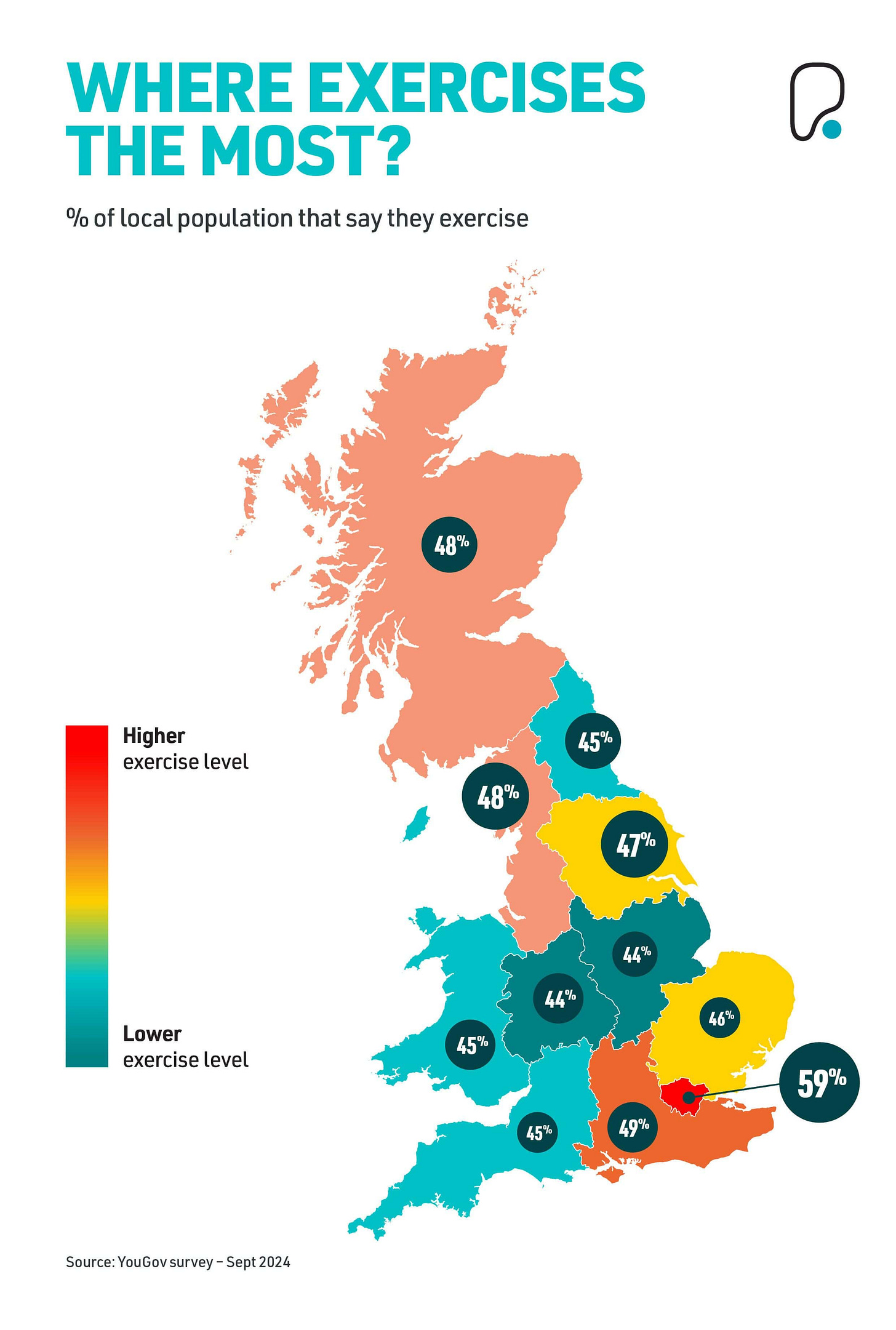The Opium of the Masses
The people must be distracted by entertainment or fear. It's time to take The Sniff Test.
Entertainment and Fear
While arguing that There Will Be Blood is one of the great political films, David Runciman claims power is exercised through one of four institutions. These are family, religion, money and the state. Everyone’s life is controlled by at least one of them.
Marx called religion the opium of the masses. Opium is a painkiller, a sedative and induces pleasure and relaxation. It allows a temporary respite from reality, but becomes addictive and all-consuming. Marx believed religion allowed workers to suffer under capitalism. He sought the destruction of faith to undermine capital and create a classless, socialist society.
Organised religion is a man-made series of rules for behaviour. Its control comes from the fear of ostracism, in this world and the next. The film Conclave centres on the struggle for power between competing ideas of what the rules should be. The frail old men exercise incredible authority through religion, as the feeble Eli Sunday does in There Will Be Blood. Marx was right in recognising the lasting potency of religion as a means of keeping people quiet.
Religiosity is undermined by affluence. As food and creature comforts become accessible, religion losses its purpose as a means to endure suffering. Less than 5% of the UK population attends church.
The collapse of religious affiliation did not free the masses as Marx expected. This was because other opiates emerged, such as television, gaming and social media. The state plays a larger role in moderating behaviour and today the masses are controlled by a combination of entertainment and fear. Why did this happen?
Passivism and Pessimism
Only a few people create knowledge and only a few accumulate great wealth. There is limited overlap between the two. Runciman discusses another film to explain how opportunism marks out society’s richest people. While many can see the evidence, only the ruthless few risk all in return for a chance of everything. Technologists such as Mark Zuckerberg in The Social Network, stumble across and then exploit new ways of engaging and pacifying the masses. As a result they accumulate wealth and, like priests and bishops, become role models to listen to and follow.
There are a few people in power and many underneath. The masses must be occupied and entertained to prevent them rising up. The mavericks who create can be tolerated, but only as long as they do not disrupt the source of true power. Zuckerberg ended censorship at Meta this week to show that he understands.
In Orwell’s 1984, the state uses perpetual war to justify strict control of the people. Loyalty must be absolute, in actions, feelings and thoughts. People regulate themselves through Crimestop, the mental discipline to prevent rebellious thoughts, and join the daily ritual of Two Minutes Hate, to reinforce love for Big Brother. State control in any society relies on fear of an enemy and the belief that its victory would be worse than any deprivations the population must endure to prevent it. This is how climate catastrophe is framed and inspires the clumsy, early attempts to regulate AI in fear of the robot apocalypse.
The true enemies of humans are passivism and pessimism. Entertainment is important, but also a distraction from our lives. Binge watching, gambling and doom-scrolling are addictions that lead to ill-health, as much as overconsuming food and under consuming exercise. Passivism is repeated engagement in distractions leading to submissiveness and inaction.
Pessimism is accepting the way things are. In contrast, optimism is taking action to make things better. Optimists prefer business to politics because the former rewards action. Politics is a battle of ideas. When ideas become policies and don’t work, we are told there was too little rather than too much of the policy. This is pessimistic because it assumes there is only one way to solve problems.
An international economy, global financial markets and supranational institutions, have contributed to mainstream political parties coalescing around the centre ground. The battle shifted to competence and personality. But policy still matters and new governments face old problems, as Labour is finding out.
The price governments pay to borrow is rising. In the UK it is now higher than when Liz Truss destroyed what was left of the Tory reputation for competence. But Rachel Reeves inherited the same challenges that face finance ministers in the West. For too long they’ve used more money as the opiate for the people.
How Progress Works
Blind optimists talk about progress as a smooth curve, accelerating to infinity. But progress has a jerky gait of setbacks and solutions. New knowledge is created to solve a problem. Knowledge is the best possible explanation of the evidence and not an unchanging truth. Accepting what we know as all we will ever know is pessimism, while optimism is working on better explanations. Optimists make people’s lives better.
The beginning of abundance came with food. Predictions that populations would outgrow food production proved wrong time and again as innovation increased agricultural productivity. Calories became so cheap that we consume too many of them, creating a new problem to solve. That solution is weight loss drugs.
Millions of people adopt a healthy lifestyle but millions more do not. London is the only region where more than half the UK population claims to exercise. A focus on health overlaps with a rise in obesity.
The government gets involved by issuing guidelines, such as 150 minutes of moderate activity a week, or 75 minutes of vigorous activity. One in ten people achieves the moderate exercise goal, through activities such as cycling, dancing, a brisk walk, or mowing the lawn.
There is a similarity between the promise of health and the promise of the afterlife. Both require sacrifices today, which is a poor incentive. Work now for reward later is a hard sell when abundance is all around. That’s when fear takes over and the government highlights the consequences of not being healthy. The carrot is superseded by the stick, but is of little effect if pain is not immediate.
This is the challenge for climate activists. They ask us to go without today to avoid a calamity tomorrow, after most of us are gone. The false deadline of 2030 fools no one. The feeling of worthiness that comes from stopping flying, recycling everything and not eating meat, appeals only to a few.
I practised a vegan diet for a few months to reduce my cholesterol count. It fell so fast my doctor said the dietary switch could not be the cause. At the time I told him that nothing else had changed. I don’t remember when I started taking NMN, but David Sinclair reminded me last weekend that one benefit is lower cholesterol. Science and supplements provided me an answer, while deprivation offered more faith than fact.
This is why weight loss drugs will be the cure for obesity. They suppress appetite and reduce calorie intake, making them easier than abstinence and vigorous exercise. They have side effects, including possible kidney and gallbladder problems and an impact on vision. These become the new challenges for science to solve and further progress is made when we do.
The cycle of progress is problem-solution-problem-solution. Plastics were an amazing innovation, but replaced almost every other material to the point where we have a waste problem. So we recycle, develop biodegradable alternatives and breed plastic eating organisms. We do not go back to a time before plastics, because the knowledge genie does not go back in the bottle. Our convenience is too great to persuade people to make sacrifices.
Progress is an opiate. People become addicted and giving is easier than taking away. Our choice is to address the side effects or to find a completely new way of behaving. The latter is hard and the preserve of a few creative and risk-loving innovators. Antidotes are easier, which is why most innovation solves small problems rather than reimagining big ones.
Can’t Do Capitalism
The role of government is to make people’s lives better. Governments must be re-elected, which means focusing on the majority of the population. They cannot risk all for a shot at everything, because electoral cycles are too short and the downside of being wrong is too great.
As a result, radical reformist movements die out. The Tea Party Republicans slept on floors of Congressional offices and declared war on government spending. Their activity peaked in 2010, with faint echoes in Trump’s proposed Department of Government Efficiency. Between Tea Party and the return of Trump, US government spending rose 95% .
It is easy to give and hard to takeaway. Curing consequences is better than depriving people of the pleasures that cause them. Yet at times the problems are big enough that only new ways of working will do. We won’t stop fossil fuel consumption until we find something cheaper and more efficient. As the carrot of a cooler climate gives way to the stick of taxation and deprivation, governments will fracture and crumble.
Politicians cannot do the blue sky thinking and experimentation required to transform people’s lives. Governments cannot do capitalism. People expect governments to make their lives better, but all they get are opiates.








Very thought provoking piece so many thanks
Religion cannot be discussed without some mention of the Hitch, so I will borrow something he said which was 'I cannot prove Jesus Christ existed any more than I can prove Socrates did'
Assuming both did, then its worth noting that both were essentially subversive characters put to death for challenging the gods of the state (sic the establishment)
Furthermore, given the New Testament was written some 200 years AD, the accounts are axiomatically made up of a lot of second hand information passed down generations and interpreted literally when the man himself was just as likely to have been metaphoric in his subversion.
I therefore wonder whether the term 'end of time' is actually a reference to the point in the future when the majority of population understand the truth and are no longer distracted by 'bread and circuses' ?
In other words, it’s the end of time for the establishment when no amount of manipulation works on the masses and they finally lose control
Worth storing up the popcorn for the final judgement day when that happens !